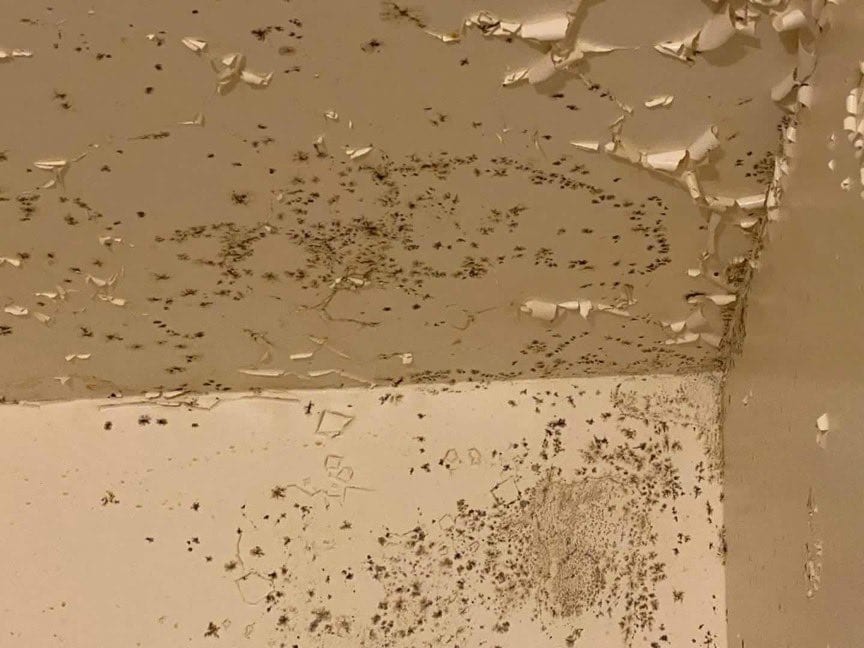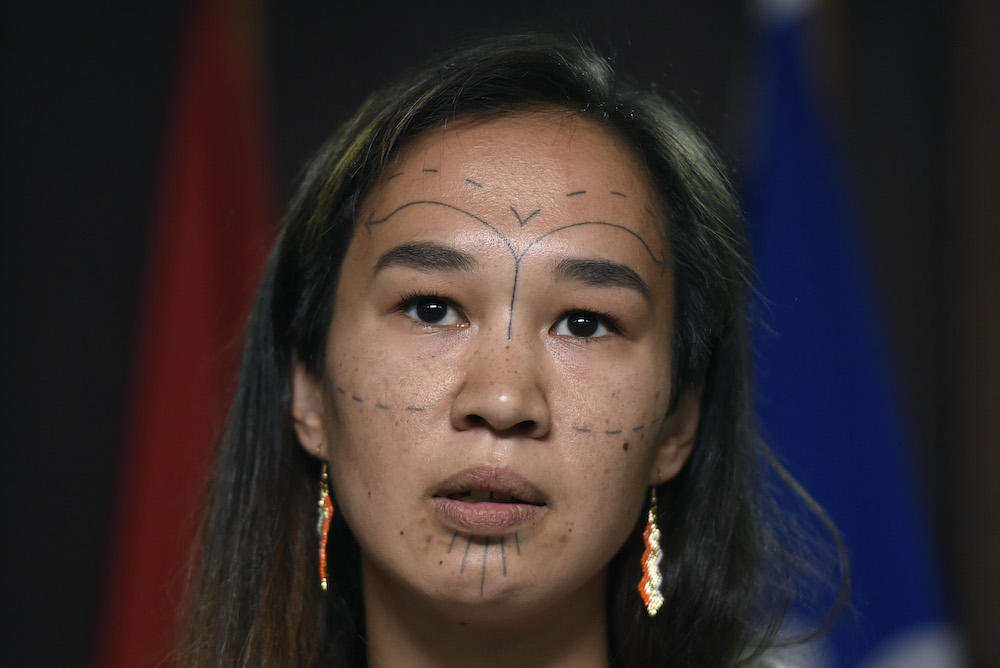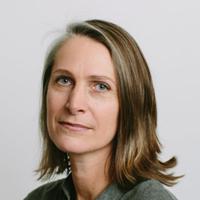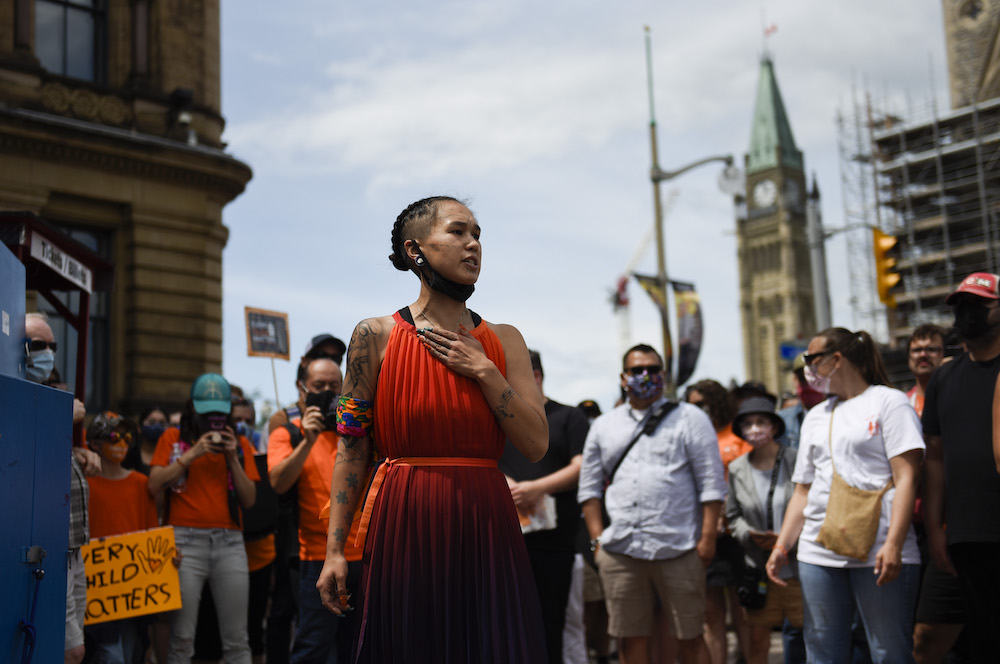It was 10 minutes. An impassioned speech she says she wasn’t yet ready to give. A wake-up call to Canadians about the realities of being an Indigenous woman in federal politics.
For a moment, Mumilaaq Qaqqaq’s farewell address stole the internet. Her words about not feeling safe as an Inuk woman in politics, given virtually on June 15 in the House of Commons, rippled across the country.
“People like me don’t belong here in the federal institution,” Qaqqaq said in the gut-punching speech that followed an announcement weeks earlier that she would not seek re-election.
The first thing Qaqqaq would like you to know about that speech: She did not step down. Contrary to some media reports, she has not resigned. With the House breaking for summer, she believed it could be her last chance to share her thoughts before the Liberals call an early election. So she took the opportunity.
But even as her words continued to reverberate, Qaqqaq was already back to work.
“I am very busy,” Qaqqaq said in a recent interview. Two days after the farewell speech, she was in a standing committee meeting working to get a proposed amendment to Bill C-19 that would have allowed Indigenous people to vote in their own language. (It was defeated by Liberal and Conservative MPs.)
Shortly after, she and fellow NDP MP Charlie Angus called on Justice Minister David Lametti to launch an independent investigation into crimes against humanity after hundreds of unmarked graves were found at former residential schools across the country. (Lametti declined.) The pair organized a March for Truth and Justice from Parliament Hill on the weekend to continue pressure on the government.
The government has the power to kickstart an investigation, she says. “When they say they don’t, it’s not a lack of ability. It’s a lack of will.”
Qaqqaq has every intention of continuing her work until the end of her term, and she hopes that takes her to October 2023, though a fall election is looking increasingly likely.
She won’t run again. But she says politics have always been a part of her life.
“People always ask, ‘When did you get into politics?' I’m like, Nov. 4, 1993. The moment I was born,” she says about growing up in Baker Lake, Nunavut, where she says everything about life was dictated by external forces.
“I’ve never truly had the right to self-determination. Therefore, I really have never figured out my true passions and what brings me true happiness.”
She didn’t seek out federal politics. They came to her. Two years ago, she was approached to run for the NDP.
“If you’d asked me in July 2019, I would have laughed in your face and said, ‘Politics? No thank you,’” she says.
But she began researching the party. Federal NDP Leader Jagmeet Singh stood out from the other party leaders, she says.
“Reading up on Jagmeet, I realized how much he’s worked from the ground up and what his core values are, what his beliefs are,” she says. “It felt like somebody that would listen to me, but also that had a sort of similar culture in terms of togetherness and openness and community and supporting. I find there’s some similarities between the Sikh and Inuit culture.”
The last thing she did before deciding to run was to seek her mom’s advice. “I don’t do anything big without talking to her,” she says.
Then, she hit the ground running and “never looked back.”
“People were like, so excited and thrilled about me and I was just like, ‘Calm down people. I’m just here to work,’” she says. “Can we stop talking about my age? I’m here to work.”
Qaqqaq’s election at age 25 doesn’t make her the youngest MP elected to office (not by several years), nor is she the youngest currently in the House. She is, however, the first NDP MP elected to Parliament in Nunavut and the only non-Liberal representative from Northern Canada.
After growing up in Baker Lake she spent several years in Iqaluit, working as an employment officer and wellness program specialist, before being elected in fall 2019.
As a result of Nunavut’s desperate housing shortage, her parents’ place in Baker Lake still provides the 27-year-old a base when she’s at home in the territory.
“I come from a riding that struggles with an immense amount of poverty and unseen homelessness,” Qaqqaq says. “There are hundreds of people, if not thousands, that are continuously couch surfing, continuously sleeping on porches, on the floor of somebody’s room, that never know where they’re going to be sleeping the next day or next week or the next month.”
Last August, she took a three-week tour of the territory, visiting eight communities and about 100 homes, often spending an hour with the occupants to hear their stories with the intent of bringing them back to Ottawa.
Because of pandemic restrictions, she did much of it alone, travelling to remote regions like Kitikmeot on the border with Northwest Territories.

“When I went there, it was very clear, very in my face, that it was way more horrible than what I had seen in the territory,” she says. “The Kitikmeot Region was horrific. I don’t know how people live in their homes.”
But they don’t have a choice, she adds.
Like the woman who greeted her with a warning not to step on one side of her deck — it was about to collapse. Inside the tiny home, exposed pipes and mould covered the walls. The single bathroom was so drafty it would freeze up in winter. The woman said the housing corporation would come to thaw the bathroom’s pipes once a week so she could bathe her children.
“There was a breeze,” Qaqqaq says about the inadequate facilities. “A clear breeze.”
She believes that fixing the housing problem would provide the foundation needed to address other social issues, like substance abuse, suicide and unemployment.
Last year, Nunavut’s 14-per-cent unemployment rate was the highest in the country.
The territory’s suicide rate has been called the highest in the world. Though estimates vary by study and region, roughly one person out of 1,000 end their own lives, according to a 2019 study by Statistics Canada. It’s a figure many, many times the national average.
Her own community of Baker Lake has one of the higher suicide rates in the territory, she says. It’s rare to make it through a holiday season without losing at least one person in the community of about 2,000 people.
“Around the fall and Christmas, we’re all kind of holding our breath,” she says, describing years when Baker Lake lost four or five residents in one winter. “It forces you to learn how to have those conversations, those difficult conversations, and forces you to interact with life differently.”
She says the colonial impact on Nunavut began in the 1950s and accelerated into the 1970s, as Inuit were removed from the land and forced into communities, where federal institutions, like RCMP stations, and churches figured prominently. It’s a history outlined in the 2019 report Action on the Qikiqtani Truth Commission.
The slaughter of thousands of sled dogs (something the federal government apologized for in 2019) restricted Inuit movement and made hunting and trapping difficult. As a result, Inuit became dependent on government assistance.
Then came the activists protesting seal hunts. Qaqqaq chuckles a little when she thinks about them dressing up in seal costumes and dousing themselves in fake blood. “Like, get over yourself,” she says. “Educate yourself, my goodness.”
But the effect on Nunavut was no laughing matter.
Despite Inuit being exempt from the legislation, a ban on hunting and importing whitecoats — baby seal pelts — by the U.S., Canada and Europe in the 1970s and ’80s sent the sealskin market crashing, pushing Inuit into greater dependence on government.
It was the final blow for many Inuit men trying to provide for their families, she says. Her father has lost count of how many friends he lost to suicide in the early 1980s.
“Everything we’ve known for hundreds if not thousands of years is being deteriorated so… quickly, in such a short amount of time,” she says, adding that more supports are needed for Inuit men. “It’s really, really sad.”
It leaves Nunavummiut women in a supporting position.
“Matriarchs are the foundation of our society. Nothing happens without us,” she says. “You can’t have a life without matriarchs.”
That support takes its toll. Qaqqaq required a two-month break from work last year, to recover from the housing tour plus a year of fighting for Inuit rights in Ottawa.
“I hit the ground running from campaign, and I didn’t stop until after that housing tour,” she says. “I’m not a bite-off-more-than-you-can-chew person. I’m more like, run after the live animal and try and take it down myself. I’m a bit too much sometimes.”

She returned to work in January but took another two-week break in the spring, again citing personal health.
She says she plans to continue her work as long as her term continues. With Indigenous Services Minister Marc Miller’s recent visit to the territory, she expects an election is not far off.
“This is the time where they’re going to start coming up. We saw them last campaign seven times in the two months leading up to the writ drop. Seven times they had the nerve to come up and make announcements and apologies,” she says. “Where on Earth were they the four years before? Not needing our vote, that’s where.”
One bright point of her time in Ottawa has been the relationship she developed with Vancouver-Granville MP Jody Wilson-Raybould. Qaqqaq was invited to Wilson-Raybould’s swearing in ceremony. It was one of the only times she felt at home on Parliament Hill.
“I don’t think I knew anyone in the room, but it was all Indigenous people in full regalia, and it just felt like you were sitting amongst Indigenous royalty-slash-family,” she says. “It was just so heartwarming.”
In that moment, she realized that Wilson-Raybould had created a space for herself in politics, though she wasn’t necessarily surprised when Wilson-Raybould recently announced she wouldn’t seek re-election after seven years in federal politics.
“It is a very draining and isolating job. Kudos to people that take it by the reins and really go for it. It’s hard work,” Qaqqaq says.
Wilson-Raybould spoke with The Tyee recently about her own challenges as an Indigenous woman in politics, and said she and Qaqqaq have supported each other during the two years they’ve both sat in the House of Commons.
“I listened, like most people did, to her speech and was deeply moved by it. She is incredibly well spoken and thoughtful and careful about how she speaks.... I was proud of her in calling out what she experienced,” she says. “It’s important to have these voices. That’s how we change the status quo.”
At the time, Wilson-Raybould said she had no doubt Qaqqaq will find a new direction or her passion. “I don’t think Mumilaaq’s career in politics is over,” she speculated.
Qaqqaq, still focused on the here and now, says she’s not certain what comes next.
“I’m honestly excited to let go of the title so that I have the freedom to be more than just an MP. Because I am so much more than just an MP,” she says.
“I need to go figure out what my passions are, what brings me happiness.... Now I can go and build that.” ![]()
Read more: Indigenous, Politics, Federal Politics
















Tyee Commenting Guidelines
Comments that violate guidelines risk being deleted, and violations may result in a temporary or permanent user ban. Maintain the spirit of good conversation to stay in the discussion.
*Please note The Tyee is not a forum for spreading misinformation about COVID-19, denying its existence or minimizing its risk to public health.
Do:
Do not: